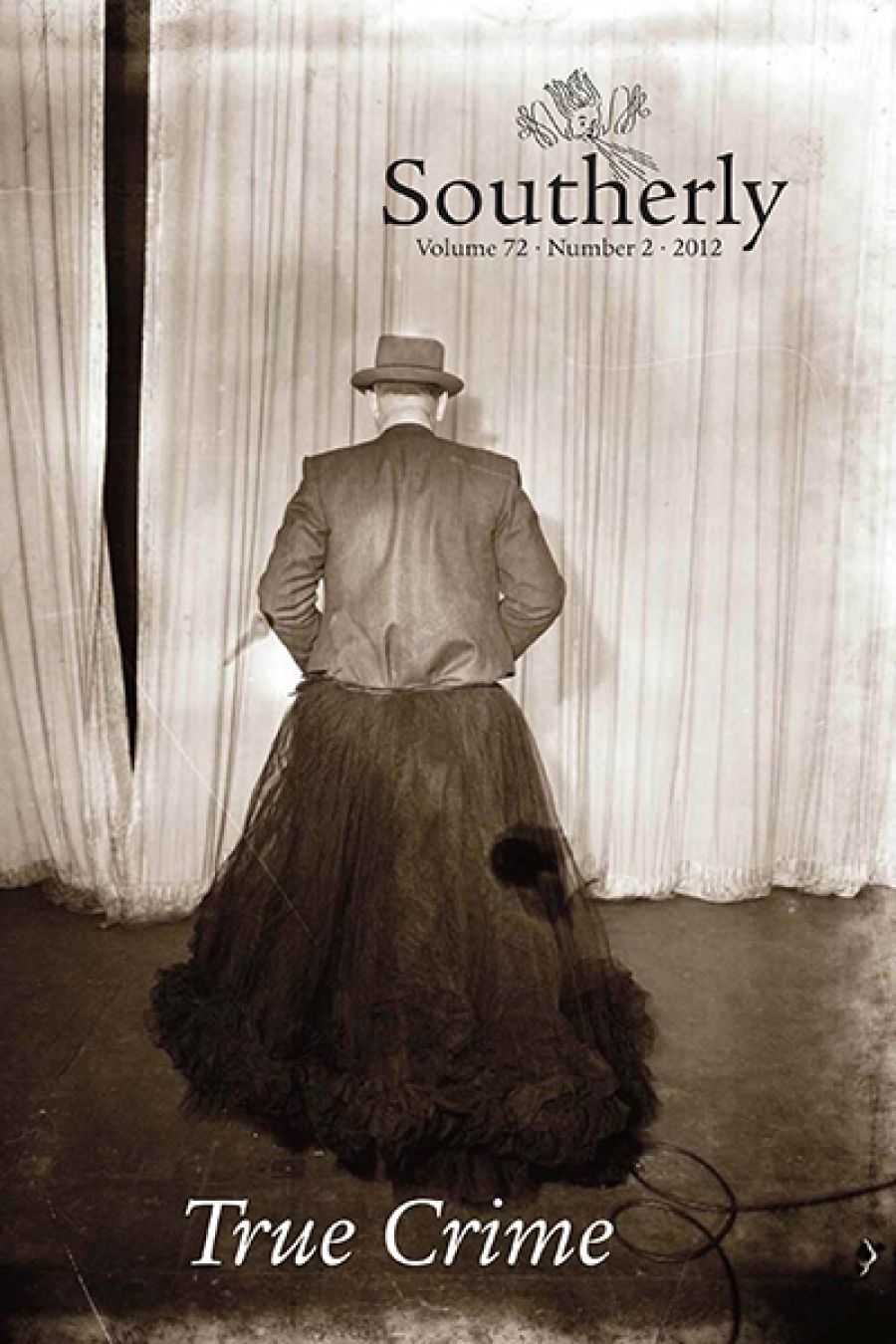
- Free Article: No
- Contents Category: Anthology
- Custom Article Title: Andrew Fuhrmann reviews Southerly, Vol. 72, No. 2, edited by Melissa Jane Hardie
- Review Article: Yes
- Article Title: Andrew Fuhrmann reviews Southerly, Vol. 72, No. 2, edited by Melissa Jane Hardie
- Online Only: No
- Custom Highlight Text:
The critical essays collected in this current issue of Australia’s oldest literary journal make for frustrating reading. The theme is true crime, with a focus on the relationship between the sensational and the literary. Topics range from Underbelly Razor to the Jerilderie Letter to Schapelle Corby’s autobiography. Fascinating material, no doubt, but most of the contributions fail to engage and feel more like mutilated book chapters or hurriedly swept-together research notes, characterised by erratic analyses and flabby prose.
- Book 1 Title: Southerly, Vol. 72, No. 2
- Book 1 Biblio: Brandl & Schlesinger, $29.95 pb, 208 pp
Peter Doyle’s brief study of Sydney’s pre-World War II underworld, with its colourful rogues gallery drawn from police-department bulletins, is an exception to the mediocrity. The bulletins, written in a lively, direct style that Doyle finds reminiscent of American hardboiled detective fiction, are offered as evidence of the ‘emergence of more nuanced, observational modes of policing’ through the 1920s and 1930s. Even Doyle’s writing, however, is infected with a touch of self-parody. Should we take seriously his disappointment at failing to uncover an overlooked Dashiell Hammett on Sydney’s mean streets? Though he praises the ‘artisanal qualities’ of the police notices, he laments that criminals themselves ‘do not seem to have put pen to paper’. This faintly parodic mood is common in greater or lesser degree to all the essays, and lends to the whole an irritating feeling of inconsequence.
There is more to recommend the poetry. I like best Catherine Vidler’s bright little étude and Patrick Jones’s typographic portrait of the misplaced William Buckley. John Tranter returns to Ischia, where he is joined by Edward Lear of all people; Justin Clemens offers mysterious scrapings from his trumpet’s interior; Adam Aitken pursues John Ashbery’s vanishing conditionals; and Corey Wakeling rants with admirable conviction and control.
The extensive reviews section, also very strong, shows the kind of commitment and energy and enthusiasm lacking in the essays.


Comments powered by CComment